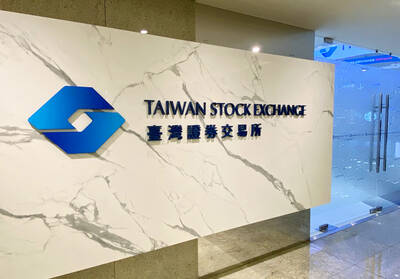Taiwanese video game developer Red Candle Games (赤燭遊戲) yesterday announced the launch of its own e-store to sell its games, including a horror game that has previously been dropped by a digital game distribution platform amid a boycott threat by Chinese Internet users.
The Taipei-based company announced on social media the opening of its e-store (shop.redcandlegames.com/en-US) where its two games — Detention (返校) and Devotion (還願) — are available for purchase in DRM-free format.
In the DRM-free format, a player can move the game folder and launch the game without Internet connection or third-party software.

Photo courtesy of Red Candle Games
“We hope to provide a direct and simple purchase channel for players who are interested in our games,” Red Candle said.
The launch came three months after Polish-based GOG.com walked back an earlier decision to sell Devotion on its store, following boycott threats from Chinese gamers due to hidden content in the game that mocks Chinese President Xi Jinping (習近平).
Devotion was originally released on Steam, another digital game distribution platform, in February 2019 to widespread praise for its setting — an abandoned apartment complex in 1980s Taiwan that created a psychological horror adventure.
However, some players discovered a Taoist talisman decorating a wall in the game containing the words “Xi Jinping Winnie the Pooh” in Chinese characters — a reference to an Internet meme that compares the Chinese leader to the popular cartoon character.
Also on the talisman were the characters nemabaqi (呢嘛叭唭), a phrase that has the same pronunciation as “Your mother is a moron” in Hoklo (also known as Taiwanese).
Following the discovery, Devotion was quickly delisted from Steam, and the game’s Chinese publisher, Indievent, distanced itself from Red Candle Games.
Red Candle issued an apology at the time, explaining the reference as being caused by “technical issues” and promising that its team would ensure no other “unintended materials” were inserted into the game so that it could soon return to the platform.
Devotion was never re-released on Steam. Two years after Devotion was removed from Steam, GOG.com announced that the game would go on sale on its platform starting on Dec. 18 last year.
However, amid threats of boycotts from Chinese players, GOG.com retracted the announcement just six hours after its publication.

Taiwan Semiconductor Manufacturing Co (TSMC, 台積電) secured a record 70.2 percent share of the global foundry business in the second quarter, up from 67.6 percent the previous quarter, and continued widening its lead over second-placed Samsung Electronics Co, TrendForce Corp (集邦科技) said on Monday. TSMC posted US$30.24 billion in sales in the April-to-June period, up 18.5 percent from the previous quarter, driven by major smartphone customers entering their ramp-up cycle and robust demand for artificial intelligence chips, laptops and PCs, which boosted wafer shipments and average selling prices, TrendForce said in a report. Samsung’s sales also grew in the second quarter, up

LIMITED IMPACT: Investor confidence was likely sustained by its relatively small exposure to the Chinese market, as only less advanced chips are made in Nanjing Taiwan Semiconductor Manufacturing Co (TSMC, 台積電) saw its stock price close steady yesterday in a sign that the loss of the validated end user (VEU) status for its Nanjing, China, fab should have a mild impact on the world’s biggest contract chipmaker financially and technologically. Media reports about the waiver loss sent TSMC down 1.29 percent during the early trading session yesterday, but the stock soon regained strength and ended at NT$1,160, unchanged from Tuesday. Investors’ confidence in TSMC was likely built on its relatively small exposure to the Chinese market, as Chinese customers contributed about 9 percent to TSMC’s revenue last

Taiwan and Japan will kick off a series of cross border listings of exchange-traded funds (ETFs) this month, a milestone for the internationalization of the local ETF market, the Taiwan Stock Exchange (TWSE) said Wednesday. In a statement, the TWSE said the cross border ETF listings between Taiwan and Japan are expected to boost the local capital market’s visibility internationally and serve as a key for Taiwan becoming an asset management hub in the region. An ETF, a pooled investment security that is traded like an individual stock, can be tracked from the price of a single stock to a large and

Despite global geopolitical uncertainties and macroeconomic volatility, DBS Bank Taiwan (星展台灣) yesterday reported that its first-half revenue rose 10 percent year-on-year to a record NT$16.5 billion (US$537.8 million), while net profit surged 65 percent to an unprecedented NT$4.4 billion. The nation’s largest foreign bank made the announcement on the second anniversary of its integration with Citibank Taiwan Ltd’s (花旗台灣) consumer banking business. “Taiwan is a key market for DBS. Over the years, we have consistently demonstrated our commitment to deepening our presence in Taiwan, not only via continued investment to support franchise growth, but also through a series of bolt-on acquisitions,” DBS